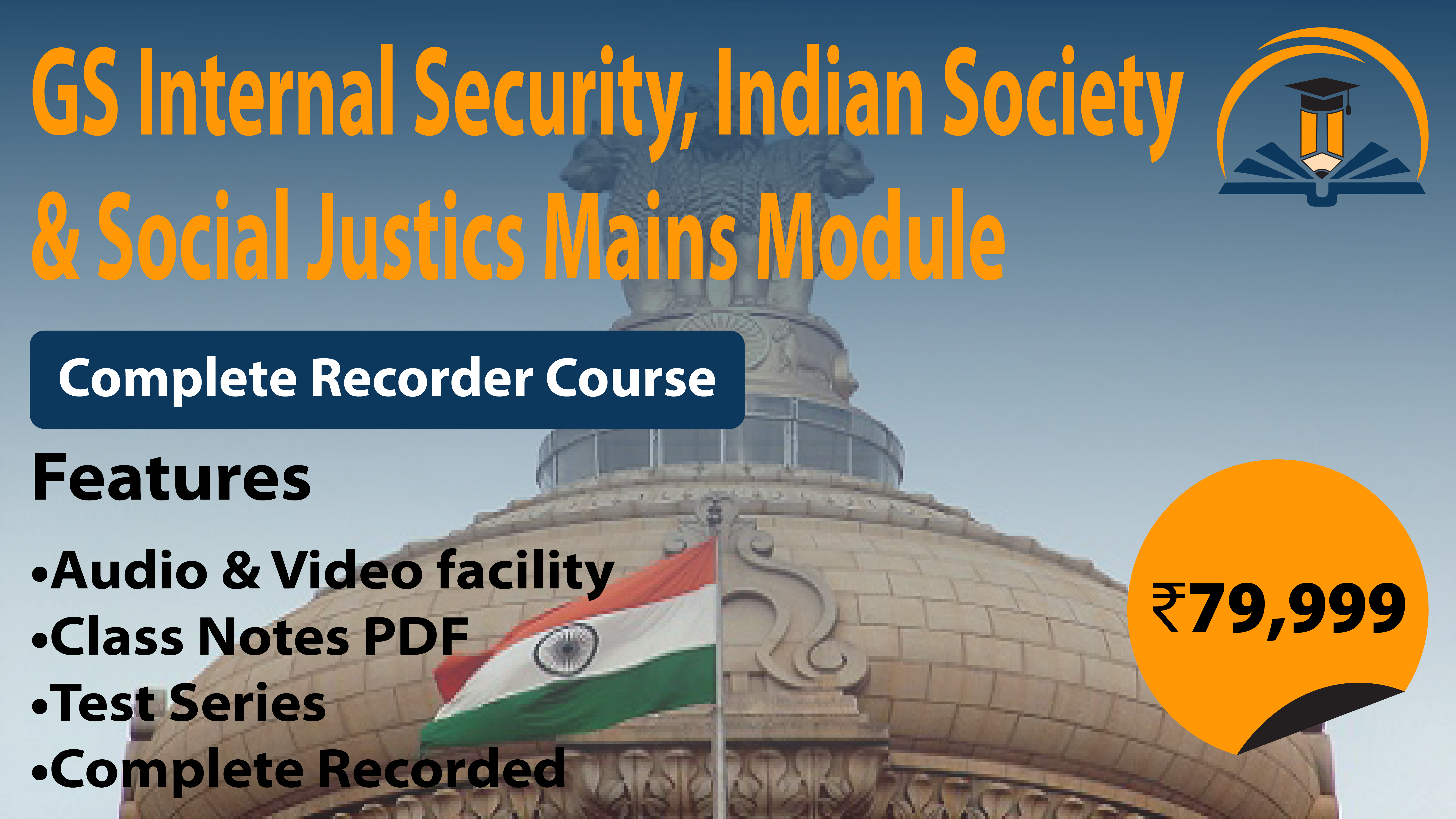About Course
The GS (General Studies) Mains Module on Internal Security, Indian Society, and Social Justice is a vital component of the UPSC (Union Public Service Commission) Civil Services Examination, aimed at assessing candidates' comprehensive understanding of crucial aspects of governance, society, and security in India. This module forms a critical part of the syllabus for the Mains stage of the examination, where candidates are expected to delve deep into complex issues, analyze them, and propose well-informed solutions.
One of the core areas covered in this module is "Internal Security." It entails a multifaceted exploration of the various challenges, threats, and issues concerning India's internal security landscape. Topics encompass counterterrorism measures, insurgency and counterinsurgency strategies, border management, cyber threats, and the role of security forces. This module equips aspirants with the knowledge and analytical skills needed to comprehend and respond to the evolving security dynamics within the country.
Additionally, the module sheds light on "Indian Society" and its multifarious dimensions. It delves into sociological aspects, historical perspectives, and contemporary issues that shape Indian society. Subjects such as caste dynamics, gender issues, communalism, regionalism, and cultural diversity are critically examined. This comprehensive approach enables candidates to appreciate the intricacies of India's social fabric, a prerequisite for informed policy formulation and governance.
The third focal point of this module revolves around "Social Justice." It encompasses the study of policies, programs, and initiatives aimed at addressing socio-economic disparities and ensuring equitable opportunities for all sections of society. Candidates gain insights into affirmative action policies, welfare schemes, and the role of the state in promoting social justice. This knowledge equips them to analyze the effectiveness of existing policies and propose innovative solutions to enhance social inclusivity.
To facilitate effective learning, this module typically includes lectures, discussions, case studies, and reading materials provided by seasoned experts and educators. Candidates are encouraged to critically evaluate real-world scenarios, historical events, and government policies, enhancing their analytical thinking and answer-writing skills.
Aspirants often find this module to be intellectually stimulating and socially relevant, as it equips them with the tools to comprehend and address some of the most pressing issues facing contemporary India. Through a deep dive into internal security, Indian society, and social justice, candidates are better prepared to meet the challenges of the UPSC Mains examination and contribute meaningfully to the nation's development and governance once they become civil servants.

